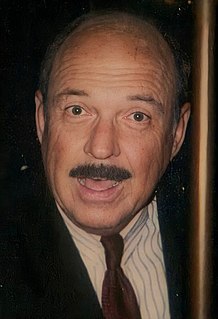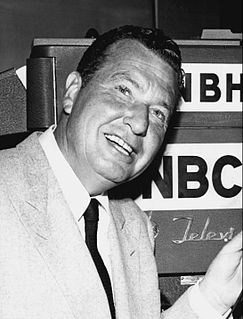A Quote by Martin Sheen
Future generations are not going to ask us what political party were you in. They are going to ask what did you do about it, when you knew the glaciers were melting.
Related Quotes
Ask how you’d live your life differently if you knew you were going to die soon, then ask yourself who those people you admire are and why you admire them, and then ask yourself what was the most fun time in your life. The answers to these questions, when seen, heard, and felt, provide us with an open doorway into our mission, our destiny, our purpose.
Before the church responded, a lot of people would ask us, 'Are you afraid of what the church would say?' And Trey and I were like, 'They're going to be cool.' And they were like, 'No, they're not. There are going to be protests.' And we were like, 'Nope, they're going to be cool.' We weren't that surprised by the church's response. We had faith in them.
When I was in high school in the early 1970s, we knew we were running out of oil; we knew that easy sources were being capped; we knew that diversifying would be much better; we knew that there were terrible dictators and horrible governments that we were enriching who hated us. We knew all that and we did really nothing.
People are always asking, "Is this person in front of me the same on the inside as he or she appears to be on the outside? Is there congruence between what's within that person and the words and actions I'm viewing and hearing externally?" Children ask that about their parents; students ask it about their teachers; parishioners ask it about their pastors and priests; employees ask it about their bosses; and in a democracy, citizens ask it about their political leaders.
What I was talking about was, of course, very autobiographical - '68 was the moment when all the young people were incredibly excited, because when we were going to sleep, we knew we would wake up not tomorrow, but in the future. There was a sense of future that was the result of the mixture of politics, cinema, music, the first joints. And the movies were a very important part of that cocktail.
The great Norwegian playwright, Henrik Ibsen, wrote, "One of these days, the younger generation will come knocking at my door." The future is knocking at our door right now. Make no mistake, the next generation will ask us one of two questions. Either they will ask: "What were you thinking; why didn't you act?" Or they will ask instead: "How did you find the moral courage to rise and successfully resolve a crisis that so many said was impossible to solve?
When we were doing the "Angel Dust" thing we got information from the National Institute of Drug Abuse because we knew that if we went out and said something about angel dust people were going to ask questions about it and we wanted to be sure we had all the information to deal with it when those questions came up. So it's all a question of being as prepared as possible out front, so that if you are going to deal with information it'll be correct. A lot of people won't check it out but some people will.
There are two things you need to ask for, to open up that channel, so you get the light. One is humility, because our ego is always going to block that guidance, and so you ask for humility.And the second thing you're going to ask for is courage, because what you're going to be asked to do is bigger than what you think you can do.




































